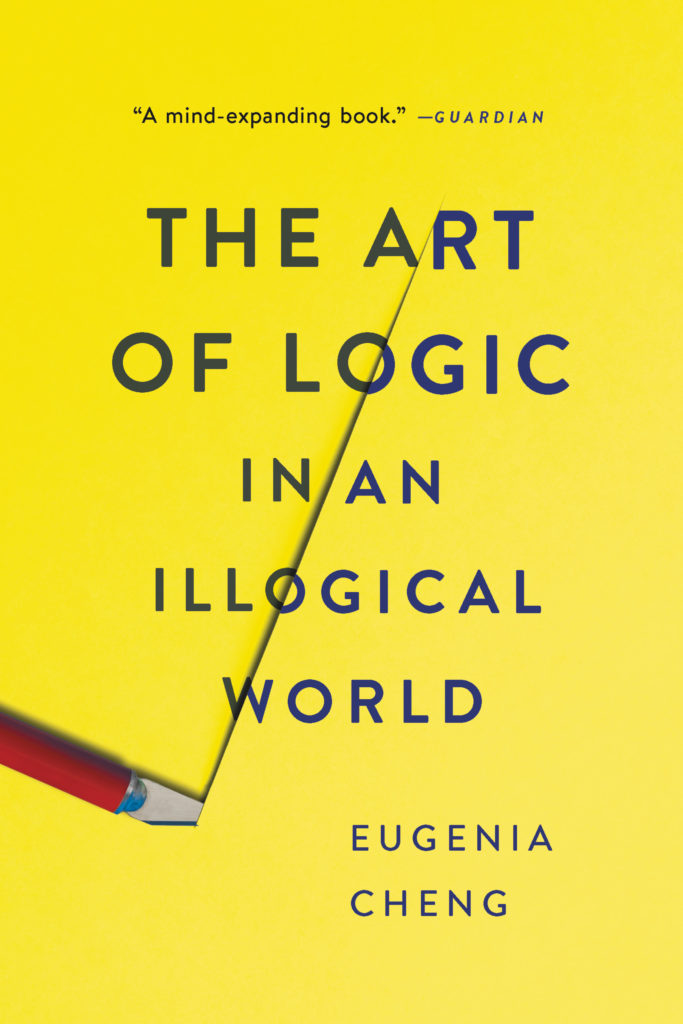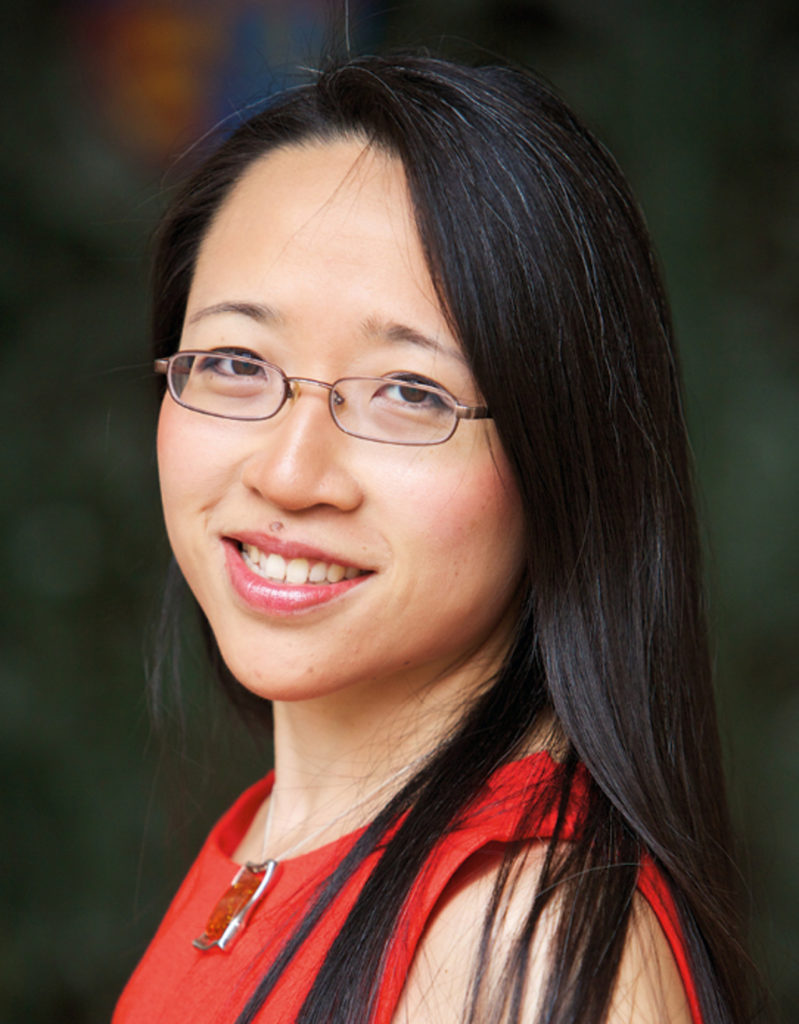By Wanda Deschamps, January 29, 2021
The Art of Logic in an Illogical World, Eugenia Cheng, Basic Books, August 11, 2020, 320 pp., $20.39

In a world where there is no shortage of pointless debates, Eugenia Cheng asks us to focus on how we know what we know. The Art of Logic in an Illogical World, her fourth book, engages the reader in lessons about reason versus emotion, drilling down the points of an argument to their core and presenting them convincingly. In a period when some have become so disconnected from reality that they have decided that democracy is inconvenient this is a welcome recalibration.
Why a focus on logic?
It means “using reason” according to the Cambridge dictionary. And in Chen’s words: “There is a lifebelt available to anyone drowning in the illogic of the modern world, and that lifebelt is logic. But like any lifebelt, it will only help if we use it well.”
As a self-described research mathematician, she explains why math applies: “The disciple of mathematics has carefully honed the techniques of logic…”
“I believe we can learn from the techniques and insights of mathematics, because it’s about constructing rigorously logical arguments and then convincing other people of them.” The next sentence was a game changer for me:
“Math isn’t just about numbers and equations: it’s a theory for justification. It provides a framework for having arguments and is so successful that in math people actually agree regularly upon conclusions.”
The Art of Logic is, in essence, a book about mathematics that can be understood by those who do not have a background in the subject.
Divided into three sections – The Power of Logic, The Limits of Logic and Beyond Logic—its three hundred words are full of historical, personal and real-life examples from classical music composer, Bach, to philosopher and mathematician, Bertrand Russell, to cardiac surgeon and author Dr. Stephen Westaby, to the United Airlines passenger dragged off a plane. Chen opens the reader’s mind to beneficial and constructive ways of thinking. And the pressure is off to pass a mathematics course!
It’s not a how to guide or a ten-step program on how to build, present and prove your case. It’s far more captivating. Simply thumbing through the index piques curiosity by references: axioms, bestiality, black lives matter, Cinderella, ice-cream, Pride and Prejudice and Wallace Gromit.
A scientist in residence at the School of the Art Institute of Chicago, Chen is also and an honorary fellow at the University of Sheffield, a pianist, painter and a prolific author. How to Bake Pi was published in 2015, Beyond Infinity in 2017 and x+y A Mathematician’s Manifesto in Rethinking Gender, also published in summer 2020.
That title points us to the aspect of gender in mathematics.
Cheng has risen to the top of a male dominated sector at a time when discussions around how to encourage more women to even enter STEM (Science-Technology-Engineering-Math) constantly appear in headlines, post-secondary student recruitment strategies as well as women’s leadership panels and webinars. While gender skeptics have argued that women do not go into math because they prefer, for example, languages over mathematics, we have an example, in Cheng, of a woman who is strong at both, therefore, indicating how much we have to gain by ensuring more women enter the field. Plus, her analysis of affirmative action, divorce, sexism, sexual harassment, and social services—issues and programs that greatly impact women and families—provide a lens for why we need gender diversity in logic, mathematics and ultimately all fields. Cheng makes the argument for gender diversity in STEM without it being the centre of the book.
And for those who say that women are too emotional, and that emotions are a liability, Cheng’s stand might be a surprise:
“I will go one step further and say we should even use them: it is important to remember that emotions can, and probably should, play a role even when we are being logical. We use them when doing rigorous mathematics as we have already seen, and so we should use them when making logical arguments in life as well. Our access to emotions is an important difference between us and computers. Emotions can help in all of our logical endeavour, and I would even go so far as to say they are crucial.”
A further lightbulb moment for me in chapter 15: “Being emotional does not necessarily equate to being irrational.” This is an important distinction and yet another example of Cheng’s succinct, approachable style.

Photo: Charlie Round-Turner
I wish Cheng’s book had been available to me when I struggled with math in school, especially in junior high. I believe I could have benefited from developing an appreciation of the subject beyond sheer numbers. However, I am so glad it has arrived whether to help create a smoother path for mathematics students, augment understanding for those trying to make sense of the daily news headlines, increase fluency for those who already have a sense of logic, or others ready to tear their hair out with family and friends seemingly arguing for an alternative reality over a Zoom call.
And there is more on the horizon from Cheng. According to her website: “Molly and the Mathematical Mysteries: Ten Interactive Adventures in Mathematical Wonderland” is “coming soon.” I can hardly wait!
“The world is awash with terrible arguments, conflict, divisiveness, fake news, victimhood, exploitation, prejudice, bigotry, blame, shouting, and miniscule attention spans.”
We can begin got change this and Eugenia Chen has given us insight into how.
(Wanda Deschamps is founder and principal of Liberty Co, a consultancy working to increase the participation level of the neurodiverse population in the workforce.)
Other reviews by Wanda Deschamps
Tomboy: Has appeal for all readers November 24, 2020
Trampled by Unicorns: Big Tech’s Empathy Problem November 9, 2020
Calling Bullshit: ‘There are three kinds of lies: lies, damned lies, and statistics.’ November 4, 2020
The Conscious Creative: Creating your own values-driven practice October 6, 2020
The Power of Disability: A book about life June 9, 2020
I Overcame Autism: Moving autism further into the public conscience April 28, 2020